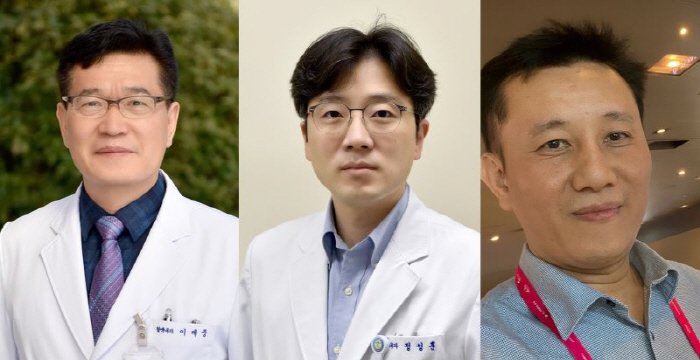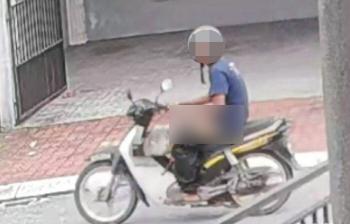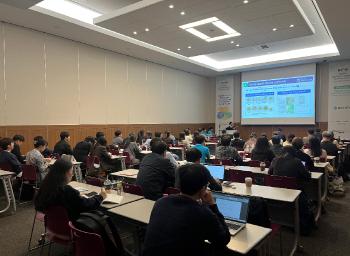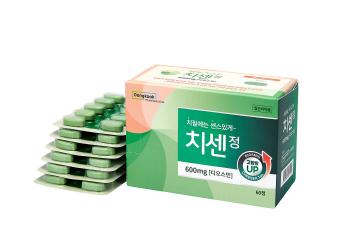Identifying the Limitations of Solid Cancer Carty Treatment, Suggesting a New Strategy...A double-targeted approach is a breakthrough
Oct 31, 2025
A research team of Lee Je-joong and Jung Sung-hoon and Dr. Lee Min-geun of the Department of Hematology at Hwasun Chonnam National University Hospital identified the root cause of difficulty in treating CAR-T in solid cancer and suggested a new strategy to overcome it.
The results were published in the journal of Hematology & Oncology (Journal of Hematology & Oncology) (IF 40.40), a world-renowned journal in the field of hematologic tumors.
CAR-T treatments are recognized for their innovative therapeutic effects in the field of blood cancer, but they still do not produce clear clinical results in solid cancer.
The research team analyzed the reasons for this difference based on literature and preclinical data and suggested four key barriers: ▲target antigen limitation ▲ tumor heterogeneity ▲ normal cell toxicity ▲ immunosuppressive tumor microenvironment (TME).
In particular, it was explained that inhibitory cytokines such as TGF-β and IL-10 present in tumor microenvironments and immunosuppressive cells such as Treg and MDSC interfere with CAR-T activation.
It was also pointed out that solid cancer has a variety of antigen expression, making it difficult to prevent antigen loss with a single target CAR-T. It is analyzed that these factors combine to create structural problems that hinder the application of solid cancer CAR-T.
As an alternative to overcoming the limitations, the research team proposed a next-generation technology, 'dual target CAR platform', that simultaneously attacks two target proteins (PD-L1, EphA2) commonly expressed by solid cancer cells. The mechanism is designed to complement tumor antigen diversity and to maintain its effectiveness in an immunosuppressive environment.
The platform recently announced preclinical performance at the 'European Society of Oncology (ESMO) 2025' held in Berlin, Germany. In animal models for liver cancer, ovarian cancer, and gastric cancer, 100% survival without weight loss and strong tumor suppression without side effects even at low doses were confirmed. In vitro experiments, 100% levels of apoptosis were also observed for PD-L1- or EphA2-expressing cancer cells.
PD-L1 is predominantly increased in immunosuppressive environments, and EphA2 is a common target found in various solid cancers. It has been shown that simultaneous targeting of both targets can reduce treatment failure due to antigen loss and maintain the continuous anticancer effect of CAR-T even in an oppressive tumor microenvironment.
The research team said, "This study is significant in that it scientifically identified why solid cancer CAR-T treatment was stagnant." The PD-L1 and EphA2 double target CAR-T has the potential to go beyond the limits of existing platforms. If it expands into clinical practice in the future, it could change the flow of solid cancer immunotherapy."
The results were published in the journal of Hematology & Oncology (Journal of Hematology & Oncology) (IF 40.40), a world-renowned journal in the field of hematologic tumors.
CAR-T treatments are recognized for their innovative therapeutic effects in the field of blood cancer, but they still do not produce clear clinical results in solid cancer.
The research team analyzed the reasons for this difference based on literature and preclinical data and suggested four key barriers: ▲target antigen limitation ▲ tumor heterogeneity ▲ normal cell toxicity ▲ immunosuppressive tumor microenvironment (TME).
In particular, it was explained that inhibitory cytokines such as TGF-β and IL-10 present in tumor microenvironments and immunosuppressive cells such as Treg and MDSC interfere with CAR-T activation.
It was also pointed out that solid cancer has a variety of antigen expression, making it difficult to prevent antigen loss with a single target CAR-T. It is analyzed that these factors combine to create structural problems that hinder the application of solid cancer CAR-T.
As an alternative to overcoming the limitations, the research team proposed a next-generation technology, 'dual target CAR platform', that simultaneously attacks two target proteins (PD-L1, EphA2) commonly expressed by solid cancer cells. The mechanism is designed to complement tumor antigen diversity and to maintain its effectiveness in an immunosuppressive environment.
The platform recently announced preclinical performance at the 'European Society of Oncology (ESMO) 2025' held in Berlin, Germany. In animal models for liver cancer, ovarian cancer, and gastric cancer, 100% survival without weight loss and strong tumor suppression without side effects even at low doses were confirmed. In vitro experiments, 100% levels of apoptosis were also observed for PD-L1- or EphA2-expressing cancer cells.
PD-L1 is predominantly increased in immunosuppressive environments, and EphA2 is a common target found in various solid cancers. It has been shown that simultaneous targeting of both targets can reduce treatment failure due to antigen loss and maintain the continuous anticancer effect of CAR-T even in an oppressive tumor microenvironment.
The research team said, "This study is significant in that it scientifically identified why solid cancer CAR-T treatment was stagnant." The PD-L1 and EphA2 double target CAR-T has the potential to go beyond the limits of existing platforms. If it expands into clinical practice in the future, it could change the flow of solid cancer immunotherapy."
|
This article was translated by Naver AI translator.














